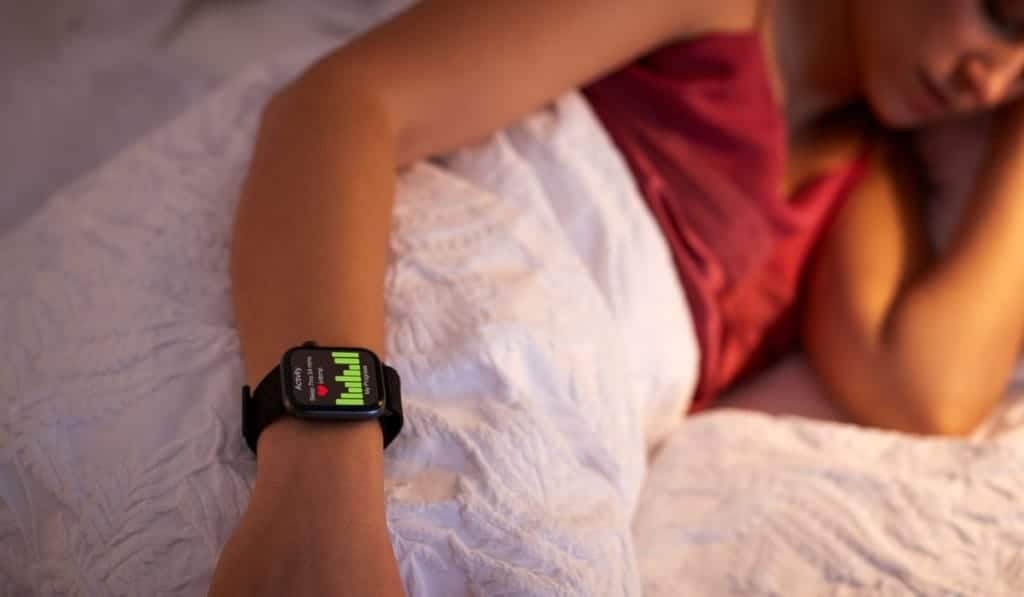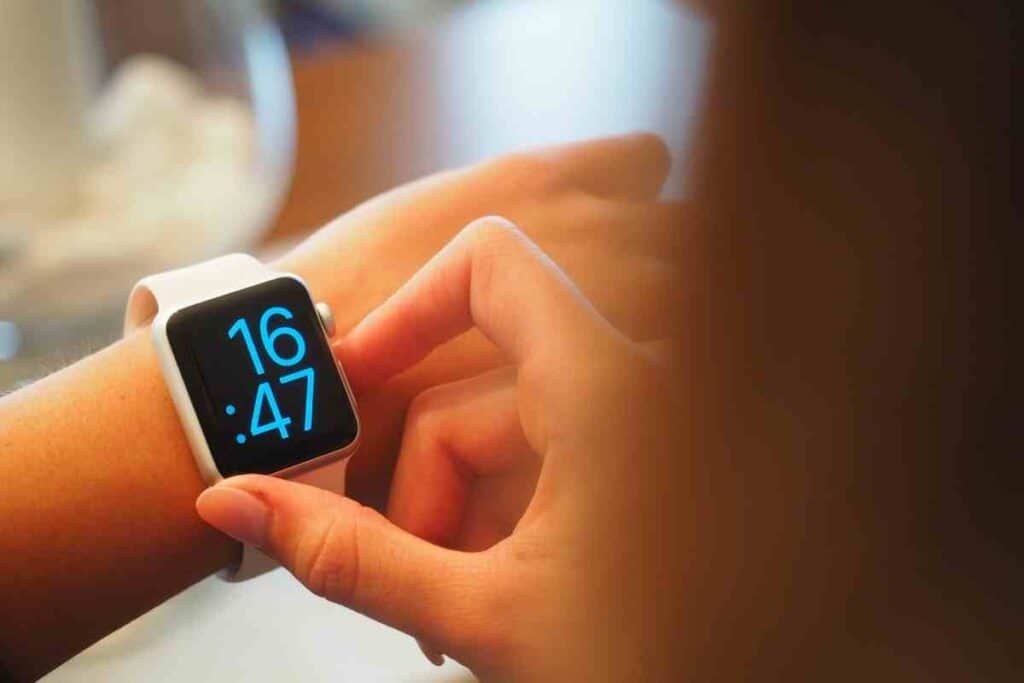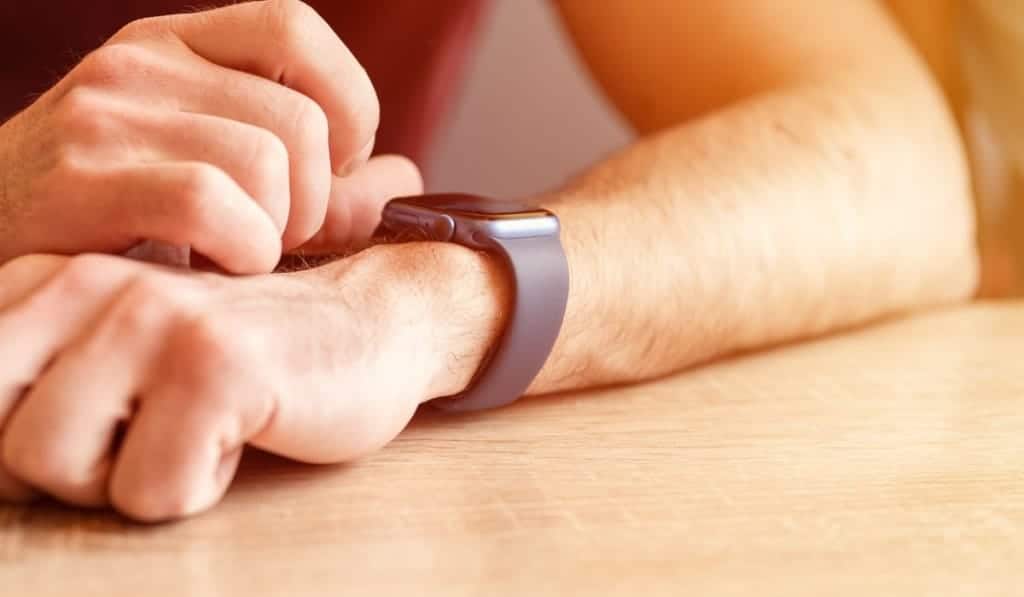Should I Wear my Apple Watch to Bed?
Smartwatches are incredible pieces of engineering that come in handy for most occasions. Once you get used to them, it may become incredibly difficult to take them off, and with the countless capabilities they come with, you might be tempted to keep them on for extended periods of time.
If you are planning on using your Apple Watch, for instance, to track your sleep, then you are probably asking yourself, should I leave my Apple Watch on at night? Here is a quick answer.
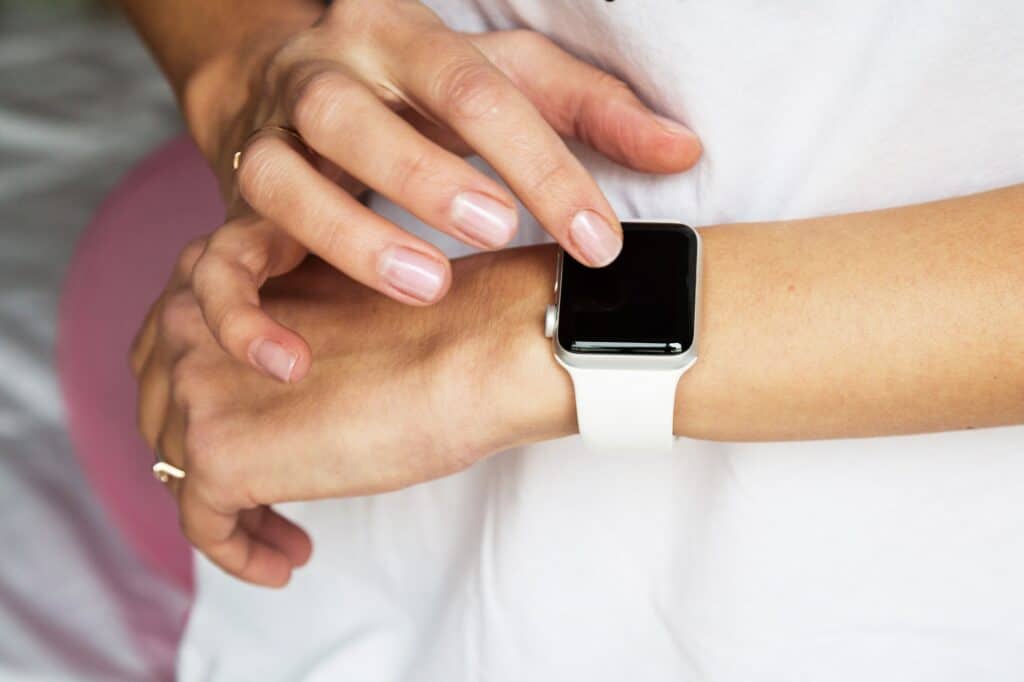
Is It Bad to Wear Your Apple Watch to Bed?
So, is it safe to wear your Apple Watch to bed? It is not recommended to wear a watch to bed if it affects your sleep quality and or causes distraction. And since many are concerned about radiations, it is worth noting that Apple Watches emit small amounts of Electromagnetic Frequency (EF), which means that you can wear it at night, but in the short-term.
Learn more about the Apple Watch series and how it may affect your sleep schedule, whether you want a sleep app to help you get better REM or you’re just in the habit of always having the watch display on your wrist.
Several issues surround Apple Watch’s, or any company’s wearables while sleeping. Apart from concerns regarding their accuracy, data privacy, and whether it is healthy in the first place to self-monitor your sleep or activity, many people are concerned about the Electromagnetic Frequency (EMF) emitted by these devices. No matter which Apple Watch you have, this could be an issue.
While this article can’t go through every concern, it will answer the following questions in detail:
• Is it bad to wear your watch while sleeping?
• Is it bad to wear Apple watch all the time?
• What do you do with Apple watch at night?
• Is it safe to wear Apple Watch 24 7?
That said, read on!
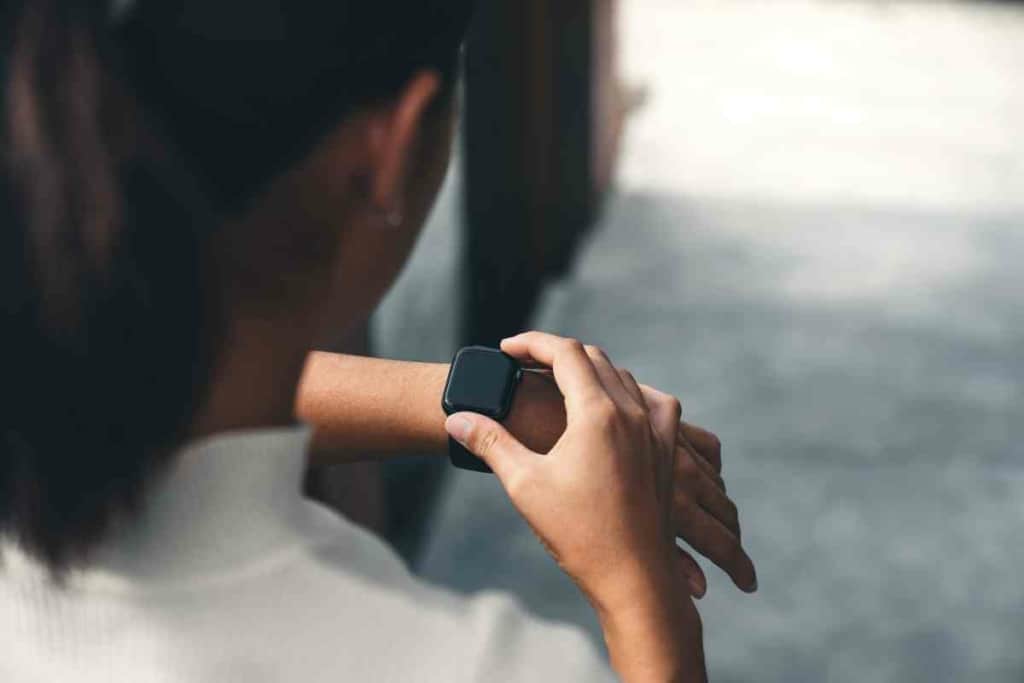
Is it Bad to Wear Your Watch While Sleeping?
Watches are primarily used to tell time. But Apple Watch alongside other smartwatches on the market today carry different capabilities that are quite convenient for several occasions. From measuring your heart rate to giving you email or message alerts, tracking your exercises to recording and collecting your sleep data, people have become increasingly dependent on them.
Because of this feature diversification, some occasions may render them useful when you are sleeping. But with these improvements, are there any health concerns or dangers of sleeping with your watch on?
Well, there are no known cases of serious harm resulting from sleeping with watches. The primary reason why you should reconsider sleeping with your watch on has to do with your comfort and quality of sleep. That is aside from protecting it from damage that might occur as you sleep.
Are There Any Benefits to Sleeping with an Apple Smartwatch?
There are lots of reasons why you would wear an Apple Watch to bed. They are, however, mostly used by those who suffer from sleeping disorders such as sleep apnea. They use a device such as an Apple Watch to help them track their sleep and help them understand their routine and get suggestions on how to improve.
The same applies to those who want to track their daytime sleepiness and anyone looking to optimize their lifestyle and performance regarding the need for mood, memory, and concentration improvement.
That said, what do you do with Apple watch at night? Here are some of the benefits:
1. Tell the Time
One of the main and the most conventional reasons why one would wear a smartwatch to bed is to be able to tell the time when they wake up in the middle of the night. Several people have different sleep cycles, particularly those with sleep conditions. Usually, when your sleep is also interrupted, you’d want to check the time.
2. Track Sleep
With an Apple Watch, you can track your sleep. The watch is equipped with sensors that keep track of your sleep-wake cycle. Models that come with this feature detect your movement during sleep, and its accelerometers are excellent if you want to track your sleep behavior.
3. Useful Features
An Apple Watch comes with a litany of features that might be useful during your sleep. These features include an alarm, sleep tracker, and heart rate monitor. Interestingly, you can also measure your breathing. In the long run, tracking your health is useful for adjusting your lifestyle. For better insights and sleep information, you can download the SleepWatch App from the Apple store to keep track of your data and useful suggestions on what to do next.
That said, you can use your Apple Watch at night to create a bedtime schedule to help you meet your sleep goals. Wearing it to bed will help you track sleep, and when you wake up, you can learn how much sleep duration you achieved as well as check your sleep trends over the past 14 days.
What About Radiation Risk from Apple Watch?
In a nutshell, the radiation risk from your smartwatch is incredibly low and non-ionizing. This is because the radiation emitted occurs in short bursts through low-powered radiofrequency (RF). And since you remove the watch occasionally for charging, it means that exposure to this radiation is low. Plus, the kind of radiation that is significantly deleterious to human health is the ionizing kind.
What this means is that since these radiations are only small, you have nothing to worry about, provided you also ensure that you do not expose yourself too long. So, while you can use them as bedside companions, their prolonged use can expose you to very small levels of RF radiation over time, and it is, therefore, important to consider a few measures to negate the risk.
The good news is that if you are a worrywart and wouldn’t take any chances while wearing your Apple Watch overnight, you can invest in an EMF Harmonizer Apple Watchband that will block the radiation.
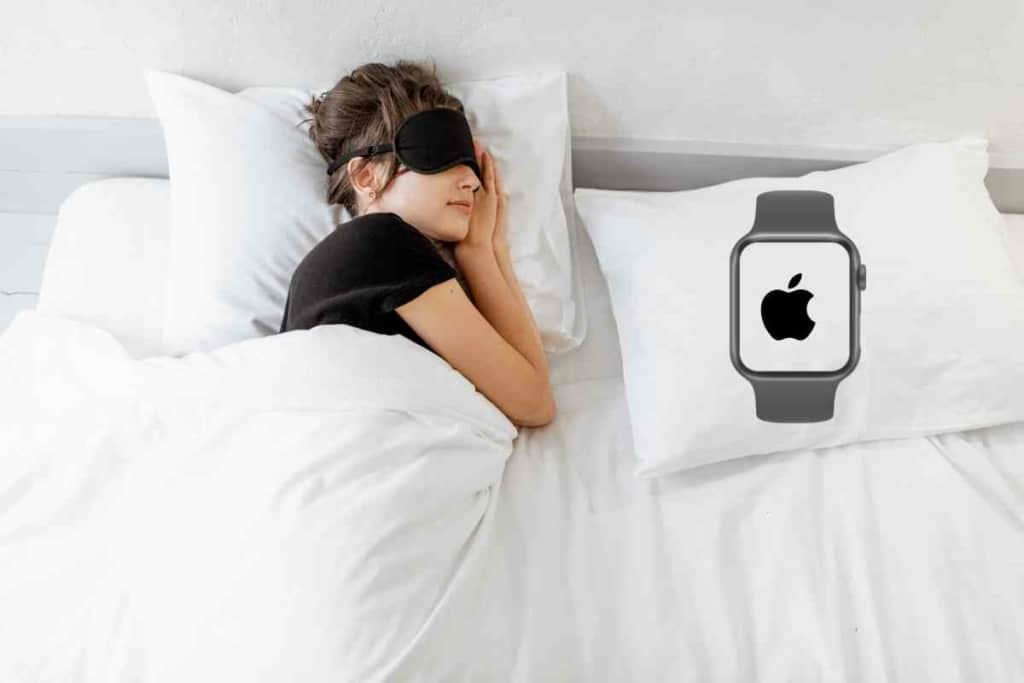
Are There Any Other Health Concerns?
Apart from radiation risk, is it bad to wear Apple Watch all the time? And are there any other health concerns? There are no biggest health risks to using Apple Watch. The biggest problem comes when you become increasingly dependent on it, leading to impulsive checking, which in turn can cause sleep distractions.
This is the worrying side to using a smartphone. Many people have incorporated them into their daily routines. They, therefore, keep checking the smartwatch every now and then for a wide range of information, including notifications and tracking their exercise or workout. This grows into an instinctive behavior that eventually makes one check their bare wrist even when they are not wearing one.
Monitoring work emails or notifications or social events late into the night can trigger an unhealthy quest for perfection. In some people, it drives anxiety levels higher. This is explained by a phenomenon known as orthosomnia, or a preoccupation with “perfect sleep,” which is measured through wearables such as smartwatches.
People with this condition, as one study posits, are over-reliant on smartwatches or wearables to enhance or improve their sleep data based on the results these wearables project. This dependency causes its own problems, including insomnia, which affects your quality of sleep.
Tips to Help You Sleep Better with Your Apple Watch
If you are looking to wear your Apple Watch overnight, here are some tips to keep you safe and help you sleep better.
• Wear a comfortable strap. This is essential to ensure that you don’t get uncomfortable as you sleep, which can, in itself, wake you up. The strap that comes with your Apple Watch can be adjusted accordingly. You can also use a different strap, but must be flexible, breathable, and made from materials like rubber or nylon.
• Wear comfortably, but not too tight. If it loosens, it won’t track your data, and if it is too tight, it may become uncomfortable.
• Sleeping on your back while wearing an Apple Watch leaves your wrists free. If you sleep on your side or your stomach, you might end up using your arms to support your weight. This will press your watch into your wrists, causing pain or discomfort.
• Optimize your home screen for sleep by choosing from the 10 available faces offered by Apple. A “Modular face” is ideal if you don’t want to disrupt your sleep. Just configure it with time and alarm, if need be. You don’t want it lighting up as you sleep, causing a distraction.
• Enable Theatre Mode, which is designed to prevent the screen from activating when you move your wrist. It will turn off the screen and won’t reactivate unless engaged.
• Turn on Do Not Disturb mode (DND) to silence all the notifications even when phone calls, texts, emails, and other alerts are getting through.
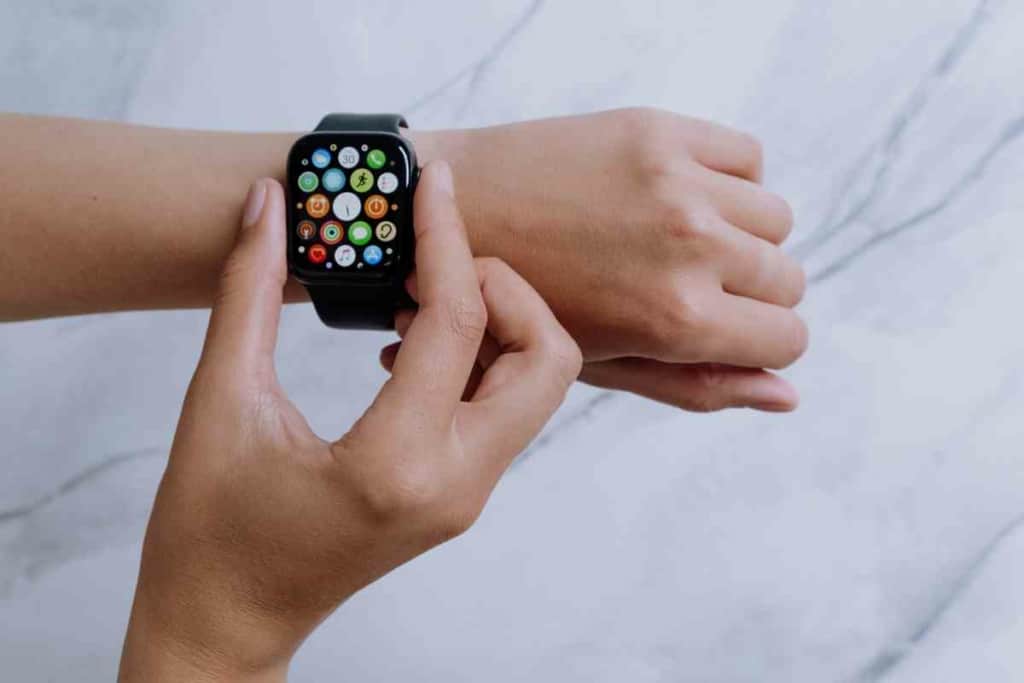
Final Thoughts
An Apple Watch is highly beneficial for many occasions, but it is important that you do not wear the watch 24/7. The risks of sleeping with the watch strapped on are relatively low, and no serious health issues accompany its use at night.
However, it is important to remember that the watch still emits low non-ionizing radiation, which is not healthy in the long term.
If you must wear the watch overnight, I have included some safety measures that will help you get through the night comfortably. This includes investing in a radiation blocking band, wearing the watch comfortably, and optimizing it for sleep. You must also ensure that the device is sufficiently charged to last through the night.
Related Content You May Find Interesting
Here are some more articles that may be of interest to you if you have an Apple Watch.
